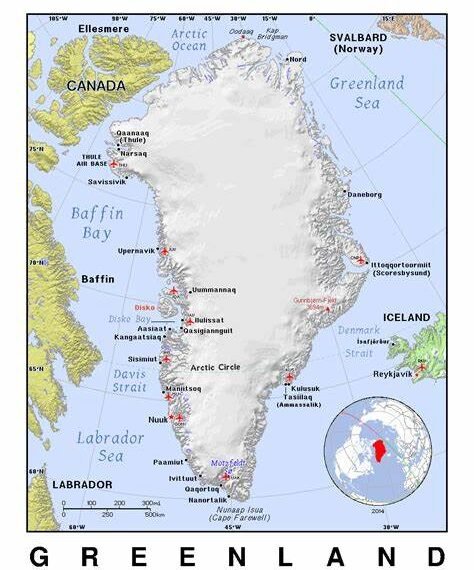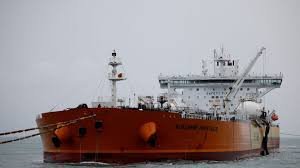President-elect Donald Trump has rekindled his interest in acquiring Greenland, the resource-rich Arctic territory under Denmark’s governance. This controversial proposal, dismissed in 2019, has sparked global debate, with reactions ranging from strategic intrigue to firm rejection. As international observers weigh the geopolitical stakes, Greenland’s leaders and the Danish government remain steadfast in preserving the island’s sovereignty.
By PC Bureau
President-elect Donald Trump has reignited interest in acquiring Greenland, the Arctic territory governed by Denmark, revisiting a proposal he first floated in 2019. The renewed suggestion has drawn a mix of intrigue and skepticism from international observers, echoing the firm dismissal it received from Danish authorities years ago.
Greenland’s pivotal location in the Arctic and its wealth of natural resources make it a prime focus for geopolitical and economic ambitions. The island boasts significant deposits of rare earth elements, heightening its appeal. Trump’s interest appears rooted in both military strategy and the economic opportunities offered by Greenland’s untapped resources.
BREAKING: President Donald Trump 🇺🇸 announces plans for the United States to officially purchase Greenland and Cuba when he takes office. pic.twitter.com/Vb73ueVtXr
— Ape𝕏 (@CubanOnlyTrump) December 23, 2024
WTF??? Trump now wants to take over Greenland “For purposes of National Security and Freedom throughout the World, the United States of America feels that the ownership and control of Greenland is an absolute necessity.” This is total insanity. pic.twitter.com/bNSVNMIr4c
— Harry Sisson (@harryjsisson) December 23, 2024
In 2019, Trump remarked, “Strategically, for the United States, it would be nice.” However, Danish Prime Minister Mette Frederiksen firmly rebuffed the notion, asserting, “Greenland is not Danish. Greenland belongs to Greenland.”
Mixed Reactions to a Polarizing Proposal
The resurgence of Trump’s Greenland idea has prompted reactions ranging from curiosity to outright dismissal. Danish officials have reiterated their stance against any sale, while Greenlandic leaders remain uninterested in altering the island’s political status. Internationally, allies and rivals alike are closely monitoring the situation due to its potential ramifications for Arctic geopolitics.
On social media, the proposal has ignited a heated debate.
- @NordicObserver: “Trump’s Greenland obsession is baffling. Sovereignty isn’t up for grabs.”
- @StrategicMindset: “Acquiring Greenland could bolster U.S. Arctic strategy. Worth considering.”
- @EcoWarrior: “Exploiting Greenland’s resources could spell disaster for the environment.”
- @GlobalDiplomat: “Such proposals strain diplomatic relations with Denmark and the EU.”
- @AmericaFirstAdvocate: “Trump’s vision for Greenland shows bold leadership in securing resources.”
- @IndigenousVoice: “Greenland’s indigenous population must have a say in their future. External ambitions overlook their rights.”
A Historical Precedent
This is not the first time the U.S. has sought to acquire Greenland. In 1946, the U.S. offered Denmark $100 million for the island, a proposal that was declined. Since then, Greenland’s strategic importance has grown, particularly with the Arctic’s increasing role in global geopolitics.
However, contemporary norms surrounding sovereignty and self-determination make such transactions unlikely. Greenland’s move toward greater autonomy and its unique cultural identity further complicate any discussions of changing its political status.
The Unlikelihood of Success
While Trump’s revived proposal has reignited discussions about Greenland’s strategic importance, the practical and diplomatic hurdles remain immense. The idea underscores the growing focus on the Arctic as a key geopolitical frontier but also highlights the challenges inherent in altering sovereignty in today’s international landscape.














